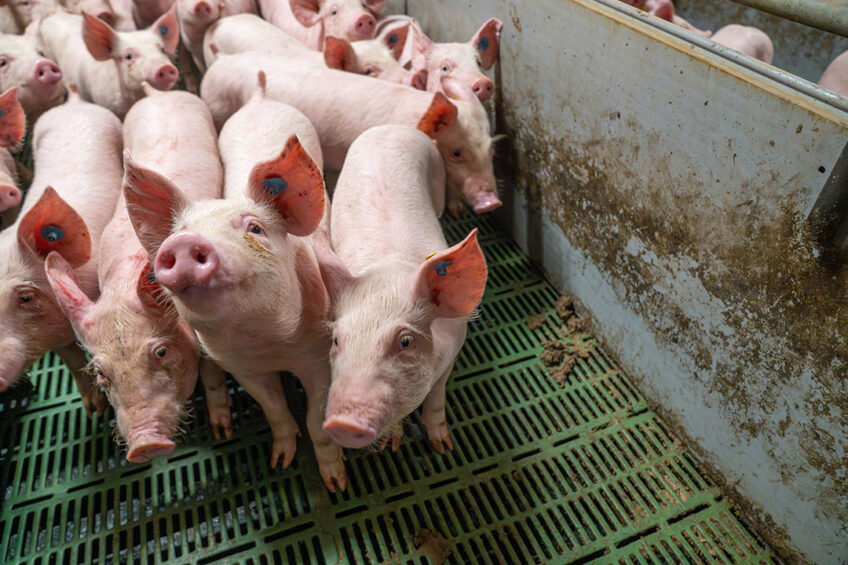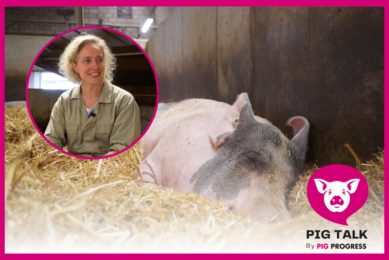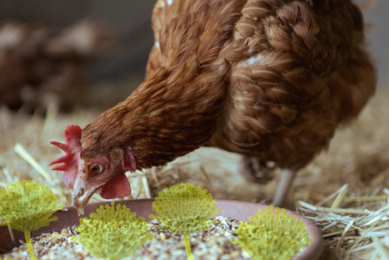The impact of an anti-mycotoxin blend on the health of nursery pigs

Researchers investigated the impact of an anti-mycotoxin blend and found that a mix of yeast, plant extract and soy lecithin can minimise the negative effects of aflatoxin contamination in nursery pigs.
Feed contamination with aflatoxin is a serious issue in pig farming which has led to the search for strategies to prevent or reduce this intoxication. Adsorbents (also known as mycotoxin binders and sequestering agents) reduce the absorption of mycotoxins and promote their excretion through urine or faeces. Research has shown that Saccharomyces cerevisiae lysate stimulates the immune system, Carduus marianum, a hepatoprotective, minimises the adverse effects of aflatoxin, and soy lecithin has antioxidant properties. This is why a team of Brazilian and American researchers investigated the impact of an anti-mycotoxin blend comprised of Saccharomyces cerevisiae lysate, Carduus marianum, and soy lecithin on the adverse effects of aflatoxin contamination in nursery pigs.
Data collection
The team selected 72 uncastrated male pigs (Large white × Landrace) for this experiment that lasted over 40 days. They allotted pigs to 4 groups:
- Group 1 received feed without aflatoxin
- Group 2 received 500 ppb of aflatoxin
- Group 3 received 1000 mg/kg of the anti-mycotoxin blend
- Group 4 received 500 ppb of aflatoxin and 1000 mg/kg of the anti-mycotoxin blend.
Researchers recorded daily feed intake, weight gain and feed gain ratio per pen. In addition, they collected blood samples for serum biochemistry analysis and in order to determine the antioxidant response. In the slaughterhouse, the team collected liver, intestine, and spleen fragments to record the weight and histopathology of these organs.
Impact of anti-mycotoxin blend on growth performance
Pigs that received feed contaminated with aflatoxin had lower body weight, less weight gain and less daily feed intake compared to pigs that received the anti-mycotoxin blend. However, aflatoxin and anti-mycotoxin blend did not affect the feed conversion ratio.
Impact of anti-mycotoxin blend on serum biochemistry
Pigs that consumed the anti-mycotoxin blend had higher concentration of total protein and globulin levels. On the other hand, pigs that received feed contaminated with aflatoxin had higher albumin levels and increased liver enzymes’ activity. However, adding the anti-mycotoxin blend reduced the adverse effects of liver enzymes’ activity.
Impact of anti-mycotoxin blend on antioxidant responses
Pigs that received feed contaminated with aflatoxin had higher biomarkers of oxidative stress. Alternatively, pigs that consumed the anti-mycotoxin blend had an improved antioxidant response.
Impact of anti-mycotoxin blend on histopathology
Pigs that received feed contaminated with aflatoxin had greater gut villus height and deeper crypts but lower villus fold size. Conversely, pigs that consumed the anti-mycotoxin blend had fewer changes in gut villus and crypts.
The authors concluded that “the intake of aflatoxin by nursery pigs has negative impacts on the health and, consequently, the animals’ growth performance; however, the addition of the contaminated feed with an anti-mycotoxin blend was able to protect the pigs, minimising the adverse effects caused by the mycotoxin,”
This article is based on the publication: Nursery pigs fed with feed contaminated by aflatoxin B1 (Aspergillus flavus) and anti-mycotoxin blend: Pathogenesis and negative impact on animal health and weight gain, Microbial Pathogenesis, Volume 186, 2024.











